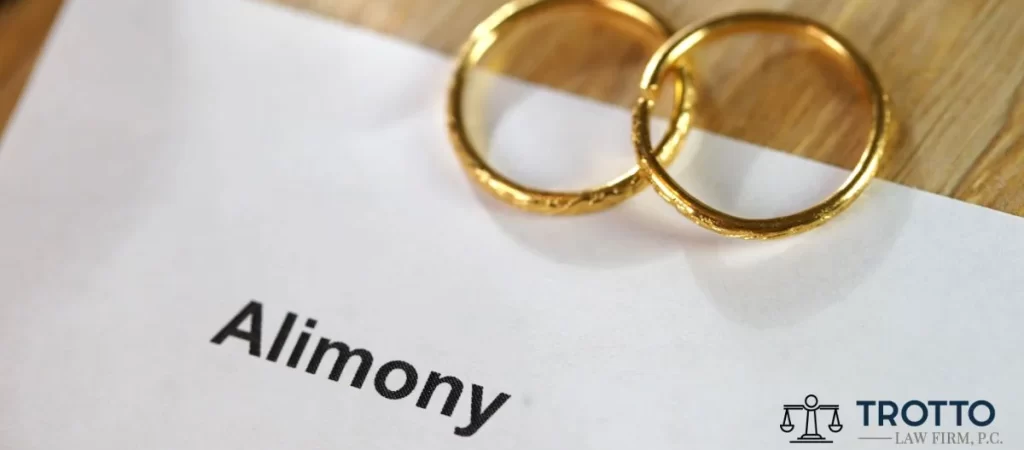Divorce is never easy, and understanding how to address alimony and equitable distribution in a Hilton, NY, divorce can help you navigate the process more effectively. Alimony, known as spousal maintenance in New York, and the division of marital assets are two critical components of any divorce settlement. Knowing the key factors involved in addressing these issues is crucial for achieving a fair and just outcome in your divorce.
Understanding Spousal Maintenance (Alimony)
Spousal maintenance, sometimes known as alimony, is a type of financial assistance provided by one spouse to the other during or after a divorce. Spousal maintenance aims to ensure that the lower-income spouse can maintain a similar level of living after divorce.
When deciding the amount and duration of spousal maintenance, the court considers various variables, including the length of the marriage, both spouses’ health and age, each spouse’s income and property, and the recipient spouse’s potential to become self-supporting.
In New York, spousal maintenance is classified into two types: temporary and post-divorce support. Temporary maintenance is paid during divorce proceedings, whereas post-divorce maintenance begins once the divorce is finalized. The amount and duration of post-divorce maintenance are established using a formula and the unique facts of the case.
Equitable Distribution of Marital Assets
Equitable distribution is the equitable split of marital assets and debts between spouses upon a divorce. In Hilton, NY, equitable distribution does not necessarily imply an equal split; rather, it indicates that assets and debts be shared in a fair and just manner, taking into account the circumstances of the marriage.
The court will first categorize property as marital or separate. Marital property includes assets and obligations acquired during the marriage, whereas separate property includes assets possessed by each spouse prior to the marriage, inheritances, or gifts received separately.
Once the property has been classified, the court will consider a number of factors to determine how the marital property should be divided, including the length of the marriage, each spouse’s income and property, their contributions to the marriage, and any economic misconduct, such as wasting marital assets.
Factors Influencing Spousal Maintenance and Equitable Distribution
Several factors influence the court’s decisions regarding spousal maintenance and equitable distribution. For spousal maintenance, factors include the length of the marriage, the age and health of both spouses, the income and property of each spouse, the standard of living during the marriage, and the ability of the recipient spouse to become self-supporting.
For equitable distribution, the court takes into account criteria such as the length of the marriage, each spouse’s financial and non-financial contributions, each spouse’s economic situation, and each spouse’s future financial needs. The court may also consider the custodial parent’s need to occupy the marital residence for the benefit of the children, as well as whether either spouse has committed financial wrongdoing.
The Role of Prenuptial Agreements in Equitable Distribution
Prenuptial agreements play a significant role in the equitable distribution process during a divorce in Hilton, NY. These agreements, made before marriage, outline how assets and debts will be divided if the marriage ends. A well-drafted prenuptial agreement can simplify the divorce process by providing clear guidelines for asset division, potentially avoiding lengthy court battles.
However, for a prenuptial agreement to be enforceable, it must be fair, fully disclosed, and executed properly. Courts may still review the agreement to ensure it does not create an undue hardship for either party.
FAQs
How Does Equitable Distribution Work in NY?
Equitable distribution in New York is the legal process used during a divorce to divide debt and marital assets. Unlike community property states, New York mandates a fair divide based on numerous criteria rather than an equal share depending on just one thing.
These elements comprise the length of the marriage, the income and assets of every partner, and every partner’s contributions to the union. Before deciding on a fair division, the court first identifies assets as either married or separate.
What Are the Two Major Factors in the Equitable Distribution of Property?
The length of the marriage and the amount of money each partner contributed are the two most important factors in the equitable distribution of property. How assets and bills are split depends on how long the marriage lasts.
Contributions of money, like income and buying property, are also important in figuring out each spouse’s share. This makes sure that everyone gets a fair share that shows their work during the marriage.
What Is a Wife Entitled to in a Divorce in New York State?
In New York, a wife is entitled to an equitable share of the marital assets. This means the property they gained during the marriage should be split fairly, but not equally. She may also be able to get alimony (spousal maintenance.) In addition, if there are children involved, she may get child support and custody. The court will decide these things based on what is right for the children.
Is an Inheritance Considered Marital Property in New York?
As long as the inheritance stays in the inheritor’s name and isn’t mixed with marriage assets, an inheritance in New York is usually seen as separate property that doesn’t have to be split up in a divorce. It might be considered marital property if the inheritance is put into a shared account or used to pay for things related to the marriage. If you want to protect a gift, you should keep it separate and carefully record how it was used during the marriage.
Contact a Hilton Divorce Attorney
Addressing alimony and equitable distribution in a Hilton, NY, divorce requires a thorough understanding of how these legal issues are addressed under New York law. To reach a fair and just resolution, both parties must ensure that spousal support and marital assets are dealt with fairly.
While the procedure might be complicated, having the appropriate information and legal advice can make a big difference. If you are going through a divorce and need help with these issues, Trotto Law Firm, P.C. is here to guide you through the complexity of alimony and equitable distribution, ensuring your rights are protected every step of the way.








